Two items have dominated this week – the Queen’s Speech at the state opening of Parliament, and the TEF results.
Queen’s Speech
The Queen’s Speech sets out the government’s legislative agenda for the session of parliament. In a rare departure this year the parliamentary legislative session is planned to last for two years, instead of one, to accommodate Brexit and the Repeal Bill. Both the Commons and Lords will debate the planned legislative programme for six working days. Education will be debated on Tuesday 27 June by the Commons and Thursday 29 June by the Lords. Usually during the final days of debate two Opposition amendments are considered and one is voted upon – it will be interesting to see what they pick. The Commons vote on the final motion takes place on Thursday 29 June. The government must win this vote -although the DUP are likely to support the government, Labour are hovering in the wings ready to capitalise on any opportunity.
The significance of the Queen’s Speech for HE was more about what it did not contain. Across the board many manifesto commitments were absent or lacked detail, but that is not unusual.
Schools were addressed with a commitment to increase the schools budget further and to make schools funding fairer. Furthermore, of importance to HE, in line with the ‘Schools that work for everyone’ consultation, the Queen’s Speech makes reference to encouraging more people, schools and institutions to come forward to help to create more good school places. This falls short of promising legislation to force universities or independent schools to sponsor or open free schools, as mentioned in the manifesto. However, legislation isn’t required to force universities into sponsorship. We await the next steps in the response to the Schools consultation. Labour’s Shadow Secretary of State for Education, Angela Rayner, has tabled the parliamentary question: What her policy is on the involvement of universities in academy sponsorship and the founding of free schools and charging maximum tuition fees. We’ll bring you the response in next week’s policy update. Grammar schools were not mentioned. While the policy has not been officially dropped the BBC cite a DfE source who stated ”the Queen’s Speech was an unambiguous decision not to go ahead with creating more grammar schools”.
The commitment remains to refreshing technical education, funding and delivering the new Institutes of Technology as part of the Industrial Strategy. Angela Rayner has also tabled a parliamentary question on reviewing funding across tertiary education. HEPI published a report on technical and professional education this week.
Immigration – the government pledged “A Bill to establish new national policies on immigration, completed by legislation to ensure that the UK makes a success of Brexit”. The new factor in this debate is the role of the DUP which has indicated it wants a policy that meets the skills needs of Britain. This may not completely dovetail with May’s commitment to the net migration target. In the election aftermath there have been rumours that the government will soften their immigration stance. However, the migration cap was confirmed again by Damien Green on Wednesday.
The Queen’s Speech also addressed Social Care, Mental Health and the tech sector. Please contact Sarah for a summary if these areas interest you.
The Teaching Excellence Framework (TEF)
Relish or rubbish it TEF is one of the most significant policy initiatives in recent years. Despite sector opposition and Lords legislative amendments, Jo Johnson’s drive to bring teaching excellence into focus survived largely intact with a review promised in 2019. The categorisation of universities into a single label of Gold, Silver or Bronze gives a highly visible message to the public. A debate rages on how much influence TEF will have on prospective students’ choices and their parents’ opinion. However, including the awards on unistats, and UCAS course pages means that TEF is a force to be respected. Jane’s blog for Wonkhe gives a personal perspective – the good outweighs the bad.
What is TEF?
TEF is a government endorsed evaluation of teaching excellence. Wonkhe have a useful beginner’s guide to the TEF which sets out the component parts within the three categories of Teaching Quality, Learning Environment and Student Outcomes and Learning (also see diagram, and explanation of TEF flags). Controversy within the sector (and Lords debate during the HE and Research Bill) centred on the metrics- which use measures of student experience, retention, and outcomes as a proxy for teaching excellence. In May Jo Johnson stated that TEF was ‘an iterative process’ and would ‘evolve and develop’ over the years. New metrics including LEO will be considered for inclusion as TEF matures.
The government’s aims for TEF are to:
- Inform prospective student choice
- Recognise, reward and drive excellent teaching (balancing a research focus at the expense of teaching experience)
- Inform and meet employer, business and industry needs
Read Wonkhe’s interesting political history of the methods successive policy makers have attempted to drive progress. And HEPI’s (short!) idiots guide to the arguments for and against the TEF.
Participation in TEF was voluntary but most (nearly all in England, fewer in the devolved administrations) chose to participate. TEF is linked to the raising of the higher fee cap. However, to allow the HE and Research Act to pass swiftly the government agreed to postpone the further link which differentiated the fee cap based on TEF ratings. This has been postponed until 2020 and can only be reinstated after an independent review of TEF has been conducted. Read John Vinney’s research blog which highlights the Lords unease over the TEF fees link as the HE and Research Bill made its way through parliament.
TEF also aligns with the government’s social mobility agenda. The metrics deliberately split out widening participation indicators such as BME and part time students to ensure consideration of these groups at institutional level.
TEF – the outcome
As the data that underlines the metrics are widely published, he sector already had a ball park idea of where institutional ratings would fall, although the subtlety of the individual benchmarking process did make it hard to predict with confidence. For some the TEF heralds a refreshing shake up of the sector, a move away from research influenced league tables. For pre-results release comment see TEF will check the most complacent and privileged and Performance management is here to stay, but TEF needs a rethink.
The TEF results for all participating providers were released by HEFCE on Thursday 22 June. At the time of writing the HEFCE TEF webpages were very slow, as an alternative see this Times Higher page which lists all institutions results but not the provider results statements. The Times Higher page also compares each provider’s TEF result with their THE World University Ranking and REF GPA.
As the policy wonks digest the national results picture, questions emerge about the relative influence of the provider statement against metrics, and a good article by Wonkhe provides volumes and information on institutions that were up or downgraded against their initial metric based ranking. There are interesting results analysis tweets and diagrams by the University of Huddersfield. Chris Husbands, the chair of the TEF, has responded to the reaction with a strong defence of the system on Wonkhe.
Jo Johnson, in the TEF results release, harks back to the original TEF objectives: “These results, highlighting the extraordinary strengths of our higher education system, will help students choose which university or college to study at. The Teaching Excellence Framework is refocusing the sector’s attention on teaching – putting in place incentives that will raise standards across the sector and giving teaching the same status as research. Students, parents, employers and taxpayers all have a shared interest in ensuring that higher education equips the next generation of graduates for success.” He also tweeted “Kudos to all 295 institutions that volunteered for the first Teaching Excellence Framework assessment”.
BU’s approach
BU’s continuing approach to TEF reflects our fundamental commitment to Fusion. Read John Vinney’s HEPI blog which addresses the importance of both research and teaching in inspiring learning excellence, and the comments from Professor Holley on this research blog: “BU is unusual in the sector in drawing together preparation for both REF and TEF, mirroring their Fusion agenda of excellence in research, education and professional practice. It is exciting to be at the centre of these policy opportunities, to build synergy in a way that will further enhance the student experience. At BU we pride ourselves on delivering innovative teaching and learning that works for all of our students, regardless of background.” If you missed it, you can read about BU’s silver award here.
The Future
Amid the excitement of ‘results day’ it is easy to forget that TEF is still evolving. There will be an extended two-year subject level pilot in 2017/18 and 2018/19, with a final version rolled out in 2019/20 (TEF year 5). Despite extensive sector consultation and comment over the past year few decisions have been made about the complexity and level of detail that will dictate the subject level structural framework. The approach based on many categories of disciplines will most genuinely reflect the learning experience of students but could be burdensome and costly – some say broader groups will be easier and less time consuming to manage but will have a masking effect by grouping together subjects that don’t really belong together. For example, subjects as diverse as geography and nursing could banded together under a social sciences heading. Subject level TEF will also make labelling harder. How will a silver institution with a range of gold and bronze subject judgements market themselves effectively but unambiguously? Will parents and prospective students (who need clear, simple branding to make decisions) pay more attention to the Gold rating for their intended subject or an overall Bronze for the intended institution? If that doesn’t have you reaching for the headache medication read Wonkhe’s article which delves further into the complexities of subject level TEF.
Also don’t forget postgraduates. Postgraduate TEF was scheduled for TEF year 4 (assessed in 2018-19 based on 2017-18 data); however, many speculate that given the extension of the subject level TEF pilot and the independent review of TEF, as well as everything else, postgraduate TEF may be shelved until further notice. See Wonkhe’s TEF article about postgraduate TEF.
But with the Bill passed, what will the Universities Minister do during this parliament? Perhaps focus more on the Science and Research part of his portfolio, with the Industrial Strategy and Brexit issues to deal with.
Lastly, at a June Wonkhe TEF conference Mark Jones (HEA) called on the sector to ‘take back control’ of teaching excellence and play a part in developing teaching metrics rather than simply critiquing them. He advocated engaging with Gibbs (2010) Dimensions of quality research and looking at international initiatives as part of potential metric development. Chris Husbands repeated this call in his blog this week.
Media Coverage
Times Higher has a hub page where they gather together key articles and comment on the TEF, and Wonkhe gather together many articles and blogs whilst also providing key results analysis. You may like eight first lessons from the TEF results.
Media coverage has focussed mostly on the mixed ratings achieved by Russell Group members:
Sector response
Nick Hillman, Director of the Higher Education Policy Institute, said: ‘The Teaching Excellence Framework would have comprehensively failed if it had simply replicated existing hierarchies. It was always designed to do something different to other league tables and rankings – namely, to show where there are pockets of excellence that have been ignored and to encourage improvements elsewhere.
‘So the fact that some of the results seem surprising suggests it is working. I visit around 50 universities a year so know the Gold ratings have been hard won by committed staff and students and are very well deserved.
‘Nonetheless, in this early guise, the TEF is far from a perfect assessment of teaching and learning. While it tells us a lot of useful things, none of them accurately reflects precisely what goes on in lecture halls. I hope university applicants will use the results in their decision making but they should do so with caution, not least because the ratings are for whole universities rather than individual courses.’
Jane Forster Sarah Carter
VC’s Policy Adviser Policy & Public Affairs Officer
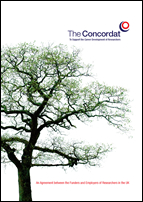 You can read our progress review and future action plan (2017-21) in full here: https://research.bournemouth.ac.uk/research-environment/research-concordat/
You can read our progress review and future action plan (2017-21) in full here: https://research.bournemouth.ac.uk/research-environment/research-concordat/







 I had the pleasure of spending the last three weeks in the Department of Life Sciences (University of Roehampton), working with Dr Giulia Corona and Dr Volker Behrends. We successfully validated an ultra-high performance liquid chromatography coupled with triple quadrupole mass spectrometry (UPLC-MS/MS) method to analyse lipid peroxidation products (breakdown products of fats) in human urine samples.
I had the pleasure of spending the last three weeks in the Department of Life Sciences (University of Roehampton), working with Dr Giulia Corona and Dr Volker Behrends. We successfully validated an ultra-high performance liquid chromatography coupled with triple quadrupole mass spectrometry (UPLC-MS/MS) method to analyse lipid peroxidation products (breakdown products of fats) in human urine samples. hod had to be tested and validated, using adult urine samples.
hod had to be tested and validated, using adult urine samples. provided the standards used in this analysis. I am grateful that I had this opportunity to further develop my research skills and to learn a new state-of-the-art technique and would like to thank all involved for making this possible!
provided the standards used in this analysis. I am grateful that I had this opportunity to further develop my research skills and to learn a new state-of-the-art technique and would like to thank all involved for making this possible!

 esearch, (led by me, Dr Paul Hartley), was recognised at UK Kidney Week in Liverpool last week. We were invited to speak about our fruit fly model of human renal disease, work that has been variously supported by grants from the British Heart Foundation and Kidney Research UK. The conference was an excellent opportunity to showcase the model and highlight our current collaborations with consultant-scientists based at Great Ormond Street Children’s Hospital as well as a number of different groups at the University of Bristol, the University of Osnabruck in Germany, Harvard Children’s Hospital and the University of Edinburgh. The research work is based in Dorset House labs and is supported by a wide network of talented people within BU as well as our undergrad and post-grad students.
esearch, (led by me, Dr Paul Hartley), was recognised at UK Kidney Week in Liverpool last week. We were invited to speak about our fruit fly model of human renal disease, work that has been variously supported by grants from the British Heart Foundation and Kidney Research UK. The conference was an excellent opportunity to showcase the model and highlight our current collaborations with consultant-scientists based at Great Ormond Street Children’s Hospital as well as a number of different groups at the University of Bristol, the University of Osnabruck in Germany, Harvard Children’s Hospital and the University of Edinburgh. The research work is based in Dorset House labs and is supported by a wide network of talented people within BU as well as our undergrad and post-grad students.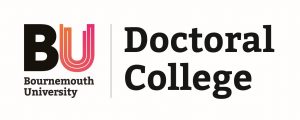



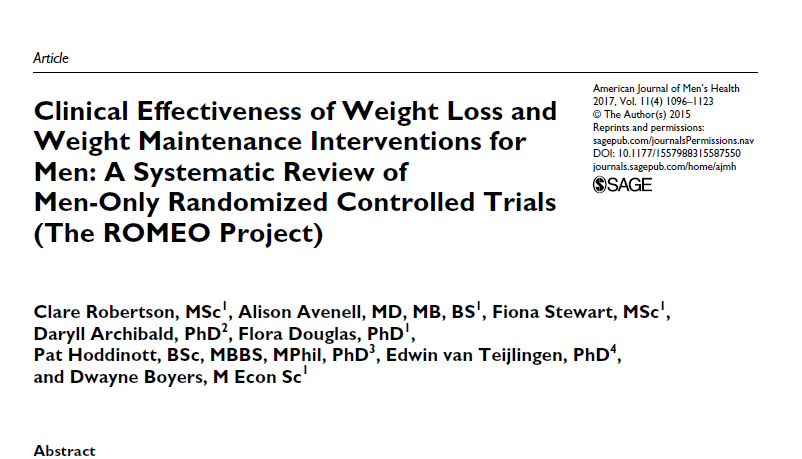
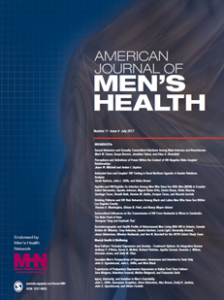
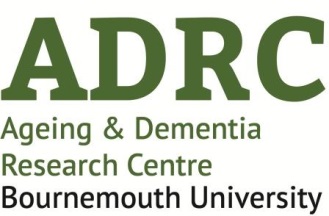 Having just completed my Undergraduate degree in Psychology, I have embarked on a summer Research Assistant position working with the Ageing and Dementia Research Centre (ADRC) here at Bournemouth University. I will be working closely with an expert team within the research centre – Dr. Michele Board, Dr. Jane Murphy, Dr. Michelle Heward, and Ashley Spriggs, who hav
Having just completed my Undergraduate degree in Psychology, I have embarked on a summer Research Assistant position working with the Ageing and Dementia Research Centre (ADRC) here at Bournemouth University. I will be working closely with an expert team within the research centre – Dr. Michele Board, Dr. Jane Murphy, Dr. Michelle Heward, and Ashley Spriggs, who hav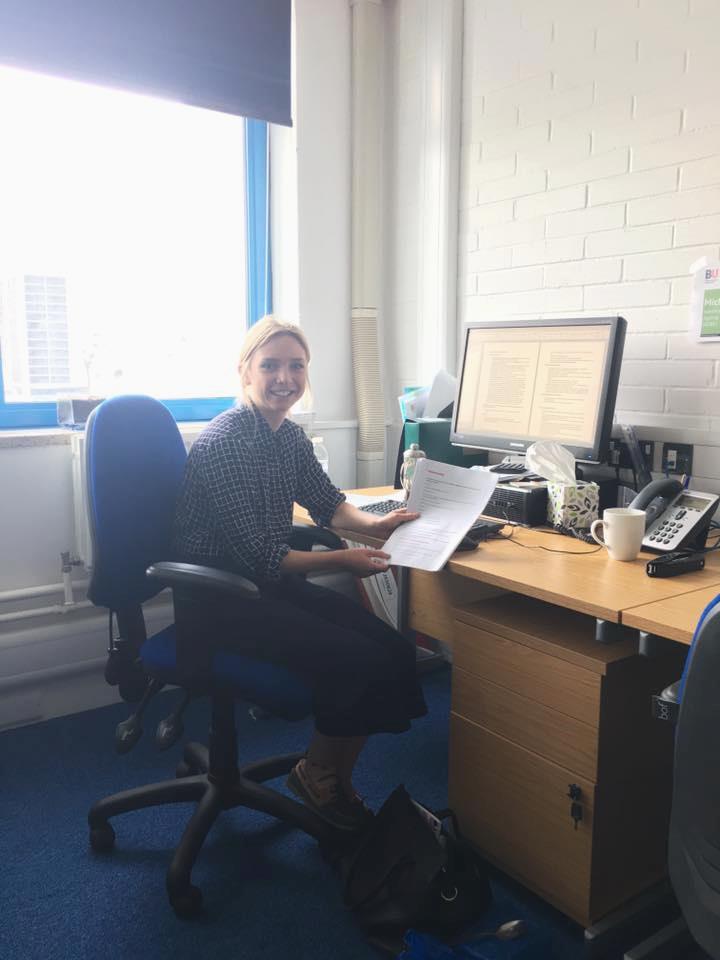 e all dedicated their careers to this particular field.
e all dedicated their careers to this particular field.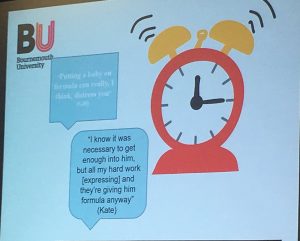
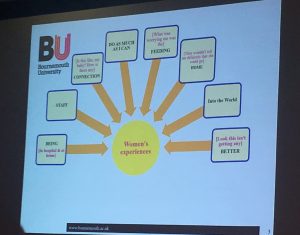
 On Wednesday 28th June, the Writing Academy will be hosting a Lunchbyte session with
On Wednesday 28th June, the Writing Academy will be hosting a Lunchbyte session with 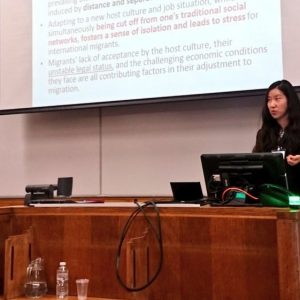
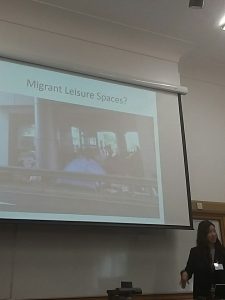
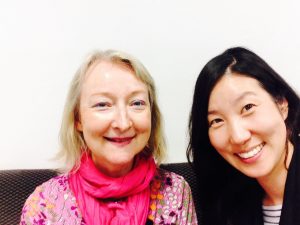
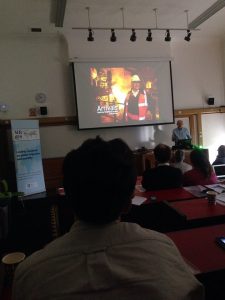
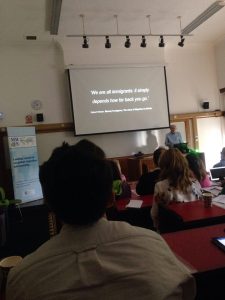
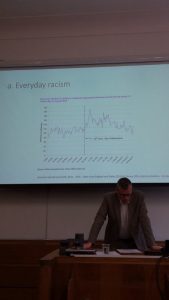
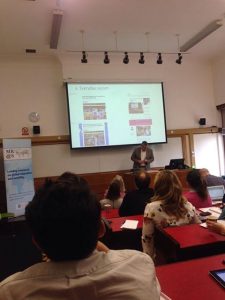

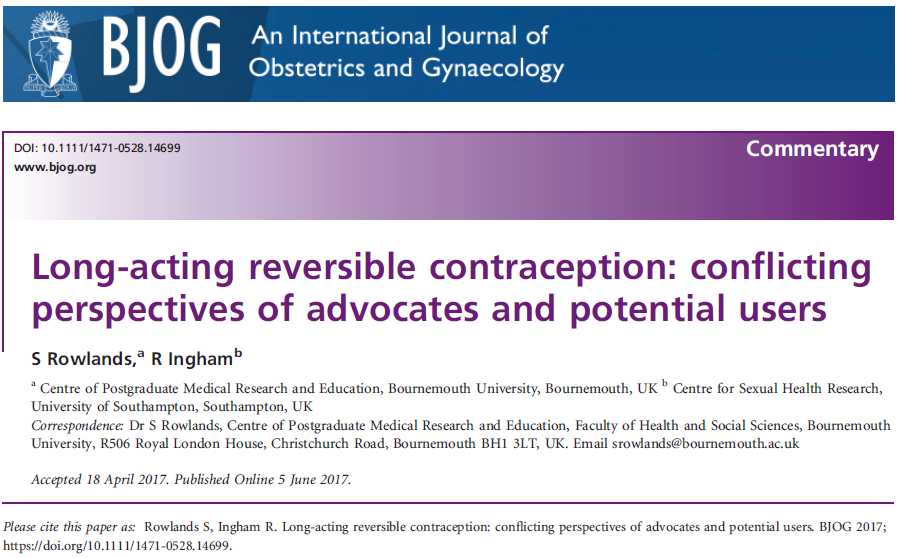











 New Nepal scoping review on maternal & neonatal health
New Nepal scoping review on maternal & neonatal health Fourth INRC Symposium: From Clinical Applications to Neuro-Inspired Computation
Fourth INRC Symposium: From Clinical Applications to Neuro-Inspired Computation Writing policy briefs
Writing policy briefs Upholding Excellence: The Concordat to Support Research Integrity
Upholding Excellence: The Concordat to Support Research Integrity ECR Funding Open Call: Research Culture & Community Grant – Application Deadline Friday 12 December
ECR Funding Open Call: Research Culture & Community Grant – Application Deadline Friday 12 December MSCA Postdoctoral Fellowships 2025 Call
MSCA Postdoctoral Fellowships 2025 Call ERC Advanced Grant 2025 Webinar
ERC Advanced Grant 2025 Webinar Horizon Europe Work Programme 2025 Published
Horizon Europe Work Programme 2025 Published Horizon Europe 2025 Work Programme pre-Published
Horizon Europe 2025 Work Programme pre-Published Update on UKRO services
Update on UKRO services European research project exploring use of ‘virtual twins’ to better manage metabolic associated fatty liver disease
European research project exploring use of ‘virtual twins’ to better manage metabolic associated fatty liver disease